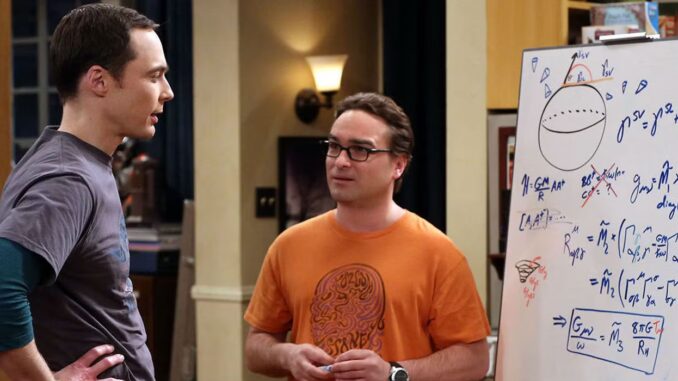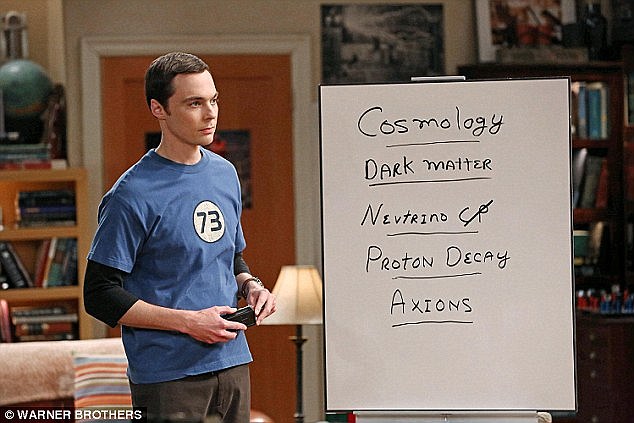
Sheldon’s Unlikely Housemate: Leonard
One of the most iconic aspects of The Big Bang Theory is the relationship between Sheldon Cooper and Leonard Hofstadter, particularly their living arrangement. Early on, Sheldon’s meticulous nature and obsessive need for order made him a difficult person to live with. However, it’s this very nature that leads to one of the funniest and most enduring aspects of their friendship: The “Roommate Agreement.”
When Leonard moves in with Sheldon, it’s clear that Sheldon is used to having things done his way, and he believes that every aspect of their living situation must be governed by a set of rules. This results in Sheldon creating a legally binding “Roommate Agreement” that outlines everything from when they should take out the trash to how Leonard should behave in certain social situations. What starts as a humorous bit soon becomes a central part of their dynamic throughout the show.

The Roommate Agreement: Rules, Regulations, and Ridiculousness
The Roommate Agreement quickly becomes a symbol of Sheldon’s need for control, and it becomes a running joke in the series. The agreement is filled with countless clauses that cover every possible scenario, some of which are bizarre or completely out of left field. For example, there’s a clause that states Leonard must not interrupt Sheldon when he’s talking, and another that outlines who gets to sit in what chair during movie nights.
While Leonard initially agrees to the terms (out of desperation or perhaps to maintain the peace), the agreement often becomes a source of friction between the two roommates. Sheldon insists on enforcing the agreement strictly, and Leonard, who is used to more casual relationships, finds himself in a constant state of compliance, even though the terms are often ludicrous.
The Funniest Clause: The “Sheldon Cooper’s Spot” Rule
One of the most famous and repeated elements of the Roommate Agreement is Sheldon’s obsession with his spot on the couch. For Sheldon, this spot is not just a seat; it’s a sacred place that he believes offers the perfect balance of comfort, temperature, and view. Over time, this spot becomes an important part of the show’s humor, as Sheldon reacts with utter horror whenever someone else sits in his designated seat. This particular clause is so well-known that it has become a staple in Sheldon’s character development and in fan discussions about the show.
The Roommate Agreement’s Role in Sheldon’s Character Development
While the Roommate Agreement is often a source of comedy, it also plays a significant role in Sheldon’s development. It highlights his need for structure, his discomfort with change, and his difficulty in adapting to social norms. Over the course of the series, the agreement comes to symbolize Sheldon’s emotional growth and the gradual shifts in his relationship with Leonard. As Sheldon begins to open up more to his friends and even starts a relationship with Amy, he starts to relax some of his rigid rules, though not without resistance.
At the same time, Leonard’s growing tolerance for Sheldon’s quirks shows how their friendship has deepened. Leonard, who once meekly complied with Sheldon’s impossible demands, begins to challenge him more openly, even finding moments of genuine humor in their odd arrangement. Their relationship, built on mutual respect despite their differences, becomes one of the most heartwarming aspects of the show.
The End of the Roommate Agreement: A Sign of Sheldon’s Growth?
As the series progresses, the Roommate Agreement fades into the background, signaling a shift in Sheldon’s character. The moment Sheldon starts to prioritize his relationships over his need for control — whether it’s in his evolving friendship with Leonard, his romance with Amy, or his increasing comfort with his group of friends — the strict rules of the agreement become less important.
In the later seasons, Sheldon’s acceptance of change and his willingness to embrace the unpredictability of life reflect the progress he’s made. While his quirks and need for structure will always be a part of him, the end of the “Roommate Agreement” represents Sheldon’s growth and the fact that he has learned to allow room for spontaneity, unpredictability, and even a little bit of chaos in his life.